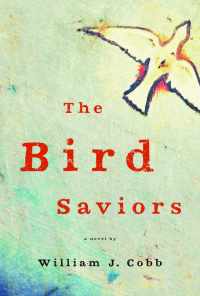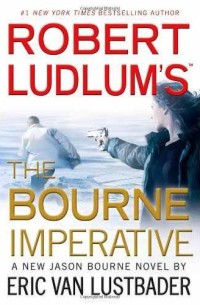The Bird Saviors by William J. Cobb
 Wednesday, June 13, 2012 at 8:13PM
Wednesday, June 13, 2012 at 8:13PM 
Published by Unbridled Books on June 12, 2012
The Bird Saviors defies categorization. It is in part a crime novel about "a low-life splinter group of fundamentalist types who see this as the end times," a point of view that provides a convenient justification for ripping off the government, big business, and other sinners. It is in part a love story, in part a family drama on the order of HBO's Big Love, in small part a science fiction story that imagines a modern plague. The plot of The Bird Saviors also defies spoiler-free description. Perhaps an introduction to the characters will give a flavor of what this innovative novel has to offer.
A deadly fever has swept the country, carried by birds. Few people who reach an advanced stage recover. One who does survive is seventeen-year-old Ruby Cole. Born a hick, Ruby is one of the few characters in The Bird Saviors who aspires to be something more than a high school dropout. Ruby has a baby named Lila. Ruby's controlling and delusional father is John Wesley Cole, known to Ruby as Lord God (so named because of his rants about wickedness). Lord God is a veteran with a prosthetic leg who believes himself to be a conduit between the tangible and spiritual worlds. Hiram Page, who already has two wives, would like to make Ruby his third. Page is a pawnshop owner who supplements his income with criminal enterprises.
Collateral characters -- for the most part, a motley collection of losers and misfits -- include: Hiram's cousin Jack Brown, who wants to pawn a diamond ring he gave to Becca Cisneros before she ended their engagement; Elray James, the Pueblo, Colorado law enforcement officer who deals with the disturbance caused by Brown's attempt to take the ring back from Cisneros; George Armstrong Crowfoot, a Department of Animal Control officer, unconventional artist, and part-time cattle rustler who helps out Cisneros at James' request; Hiram's nephew Ezra Page, who has a run-in with Crowfoot over Cisneros; Ezra's friend Mosca, who won a shrunken head in a card game and is sure it is the head of an infamous outlaw; and ornithologist Ward Costello, who is studying declining bird populations. Costello needs someone to count birds. Ruby considers herself perfect for the job since counting birds is her hobby.
The Bird Saviors explores a number of interesting themes. Is it important to be extraordinary? Costello thinks he isn't. He harbors a secret desire to be a bird savior rather than a bird counter. He'd like to find the Lord God Bird, a woodpecker that may well be extinct. The novel's other Lord God views a Barn Owl as an omen, a portent of doom, and he puts himself at risk to help the kind of person he usually despises. Costello and Lord God could not be more different yet they have something in common beyond their mutual belief (based on science in one case and superstition in the other) that dwindling bird populations are a sign of things to come. Perhaps (the novel might be saying) people often fail to recognize their extraordinary gifts. Perhaps people who are ordinary, and even people who are damaged, are capable of extraordinary acts.
The characters are surprisingly complex. Those who behave badly are often troubled by a conscience; those who seem evil often have a heart. We see the characters differently as the novel shows them to us through the eyes of others and then through their own eyes. The story bleeds primal emotions; characters are driven by anger and greed and occasionally by love. For all their complexity, William J. Cobb has the wonderful ability to summarize his characters in a few choice phrases.
Cobb's crisp prose moves the story forward at a rapid pace. His images of hardscrabble lifestyles are as sharp as finely focused photographs. Some readers will probably be troubled by the absence of quotation marks but it's a clean style to which I quickly adapted. The dialog is, in fact, one of the novel's strengths. It perfectly reflects the characters' rough-and tumble lives.
In the end, the storylines don't cohere as well as one might hope. Some threads are left dangling and the narrative doesn't quite live up to its potential. I'm not sure what to make of the fever; its inclusion seems out of place. These quibbles are relatively minor, however, compared to the pleasure I took in reading about these remarkable, unconventional characters.
RECOMMENDED



